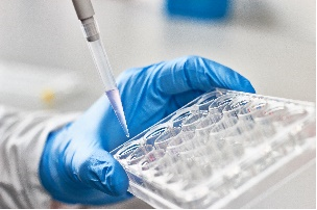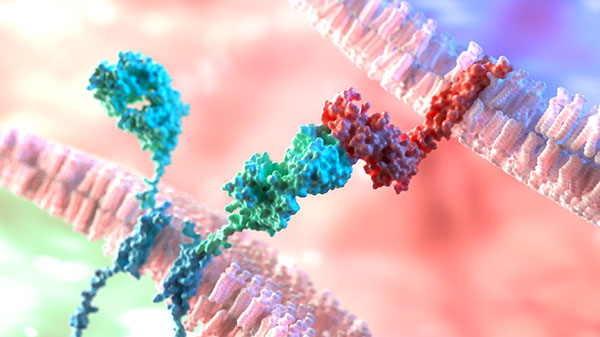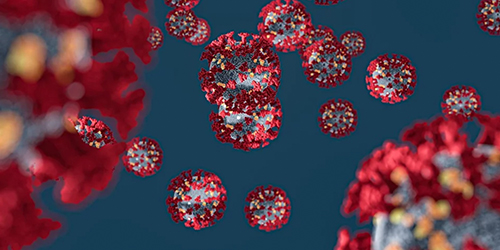Background Services Overview Protocols Related Products Q&A Resources
With a proven reputation, innovative complement autoantibody test technology, high-quality assay results and a deep commitment towards addressing customer needs, Creative Biolabs provides a suite of complement autoantibody test services to advance your diagnostic and therapeutic discovery.
Background
Background of C1 Inhibitor Autoantibody
C1-inhibitor (C1-INH) is a protein involved in the regulation of classical pathway of complement activation. It is a plasma serpin that attenuates inflammation by irreversible inhibition of proteases of the complement and contact phase systems. The deficiency of the C1-INH can be inherited or acquired. Acquired C1-INH deficiency is usually related to the presence of circulating C1-INH autoantibodies. C1-INH autoantibodies isotype include IgG, IgA, and IgM. These autoantibodies have been proven to bind to two synthetic peptides corresponding to C1-INH amino acid residues 438-449 (peptide 2) and 448-459 (peptide 3) but not to peptide 1 (residues 428-440). The reduction in C1-INH function due to C1-INH autoantibodies leads to activation of the classical complement pathway, complement consumption and activation of the contact system resulting in the generation of the vasoactive peptide bradykinin, increased vascular permeability, and angioedema. C1-INH autoantibody was first reported in a patient with acquired angioedema (AAE) and this antibody is closely associated with the occurrence of AAE. Moreover, anti-C1-INH was also found in systemic lupus erythematosus (SLE) patients exhibiting symptoms of angioedema, but its role was not clarified. Given its important role in these diseases, C1-INH autoantibody test is extremely important for the diagnosis, treatment, and related research of these diseases.
C1-INH Autoantibody Test

The quantity of IgG, IgA and IgM type antibodies reacting with the C1-INH protein can be assessed by enzyme-linked immunosorbent assay (ELISA). Briefly, plates are coated with 0.1 ml of 0.01 mg/ml purified C1-INH. The binding of anti-C1-INH autoantibodies is determined using anti-human IgG/IgA/IgM peroxidase-labeled antibodies and tetramethyl-benzidine detection system. Optical density is measured at 450 nm and the means of duplicate wells are calculated. Serial dilutions of a serum sample are used as an internal standard. Data obtained as optical density values are converted to U/ml units according to this standard.
Services Overview
Our Services of C1-INH Autoantibody Test
Creative Biolabs leverages its expertise in complement autoantibody testing to provide our clinical, biotech, pharmaceutical, and diagnostic partners with a wide range of specialized laboratory testing services and unparalleled complement expertise. Our laboratory has many years of experience in developing complement testing and advanced equipment, which enables us to provide our customers with the highest quality and professional complement autoantibody testing services to support their research projects and clinical trials. In the C1-INH autoantibody test, our service has the following characteristics:
-
We have a diverse test platform to meet the needs of both complement basic research and clinical trials.
-
We utilize the latest technologies to ensure our test results are accurate and timely.
-
Our dedicated experts provide detailed results interpretation.
-
We guarantee the highest quality service with the most reasonable price.
If you want to know more, please feel free to contact us.
Protocols
Related Product
Resources
Questions & Answer
A: Autoantibodies that inactivate C1 inhibitors were first described in 1986. Autoantibodies that bind to C1 inhibitor molecules reduce the availability of molecular reaction centers in a manner that interferes with the irreversible inhibition of the target enzyme. In this manner, dysregulated activation of the kinin and complement pathways leads to disease manifestations.
A: Enzyme-linked immunosorbent assay (ELISA) is a quantitative analytical method for measuring the concentration of molecules in biological fluids through antigen-antibody reactions. Here, we can measure anti-C1 inhibitor autoantibodies by indirect ELISA. In this method, serum samples are incubated in microtiter plates coated with plasma-derived C1 inhibitors.
A: Autoantibodies against C1 inhibitors are of diagnostic value in acquired angioedema due to C1 inhibitor deficiency. Autoantibodies can circulate in complexes, which makes them undetectable by established methods. We can measure C1-INH/C1-INH-Ab complexes and study their association with autoantibodies. This measurement helps to predict the development of potential diseases and to monitor the efficiency of treatment of potential diseases.
A: Yes, we provide detailed instructions for sample collection and storage to ensure the integrity of the samples and accuracy of the test results. It's crucial to follow these guidelines for optimal outcomes. Absolutely, we understand that research projects have unique requirements. We offer customization options to tailor the test to your specific research needs, ensuring optimal relevance and accuracy.
For Research Use Only.
Related Sections:




